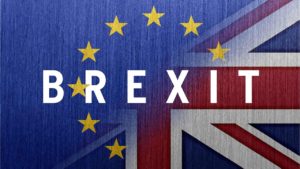Downing Street is refusing to consider proposals to have EU officials stationed at British ports serving Ireland, intended as part of a solution to the problem of the Irish border after Brexit.

The compromise plan, which is under consideration by Ireland and Brussels, is aimed at “de-dramatising” the Irish border issue and reflects the fact that many goods enter Northern Ireland via Dublin, and not Belfast or the two other main ports in the region.
But No 10 is insistent that the proposals set out in the Chequers plan, with a common rulebook for goods and agrifood, and a “facilitated customs arrangement”, which would involve the UK levying EU tariffs, will ultimately remove the need for border checks altogether.
A Downing Street spokesman said: “We believe the solution that we set out in the white paper and at Chequers delivers on the issue of the Northern Ireland border. As the PM has said many times, she is a committed unionist; that’s a key fact in where we’ve ended up.”
Checks at ports could also breach an amendment to the government’s customs bill, currently making its way through the Lords, which would rule out a customs border in the Irish Sea.
Michel Barnier has asked the Brexit secretary, Dominic Raab, for data on freight movements. Belfast sources say there have been delays in producing the data because ferry companies do not register the final destination of freight and some containers could have multiple destinations.
Seamus Leheny, the head of the Freight Transport Association in Northern Ireland, said many members used the route between Dublin and Holyhead in Wales because it was the shortest crossing. Data from the Central Statistics Office in Ireland shows that 1.1m trucks and unaccompanied containers arrive in Dublin every year but the data does not include how many journeys each lorry makes a year.
While Theresa May opposes EU checks in British ports, recent reports suggest there is a loosening of opposition among Brexiters. The Brexit-supporting European Research Group, chaired by Jacob Rees-Mogg, will reportedly support the proposal in a Brexit blueprint due to be published this week, believing it will break “the logjam” and show the willingness to Brussels.
One source said: “The ERG don’t care enough about Northern Ireland. But they are now very worried about a ‘no deal’ and time running out. They don’t want Ireland scuppering everything.”
They argue that EU officials checking trucks in British ports is no different in principle to having French police in St Pancras station in London checking passports of Eurostar passengers, or British border force operations in Calais.
The proposal has not been tabled officially in Brussels but Barnier confirmed it was one of the options under consideration.
In a transcript of his conversation with the Brexit select committee in Brussels, he told MPs that plant and animal checks could be done “on board vessels, in ports outside Ireland”.
Under the proposal, ports such as Liverpool, Holyhead and Fishguard would have red and green lanes for freight. All trucks carrying food and animal produce would be required to have checked under EU law and, along with any trucks without correct paperwork or deemed to be potential smuggling suspects, would be directed into the red channel to be examined.
Trusted traders with non-agrifood loads assessed not to be a smuggling risk would pass through the green channel unchecked provided customs declarations forms, which can be completed electronically, were submitted in advance.
Animals and agrifood that go from Britain to Northern Ireland, and to Ireland, are already checked to protect against the spread of diseases such as BSE and TB and implementing this for other goods would just be an extension of the current system, said one source close to negotiations.
Leheny said having checks at British ports would protect the island of Ireland and could even boost Northern Ireland’s exports.
“If poultry and beef coming in from Britain to Northern Ireland passed through the red channel it could be enough to satisfy the EU,” said. “The meat exporters would also be happy because it would mean they could send their products to GB and across the border into Ireland and the EU.
“They would still have both markets. We have always said if we are going to do checks, we should do them when the wheels aren’t turning, when the trucks are in the port or at sea, that way there is no interruption in the flow of traffic.”
Source: OntheMosway

